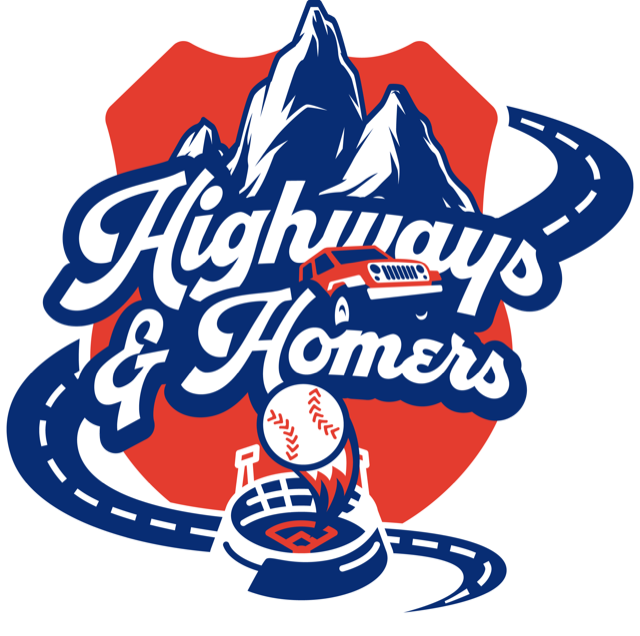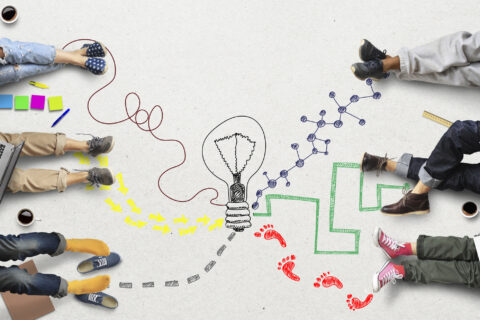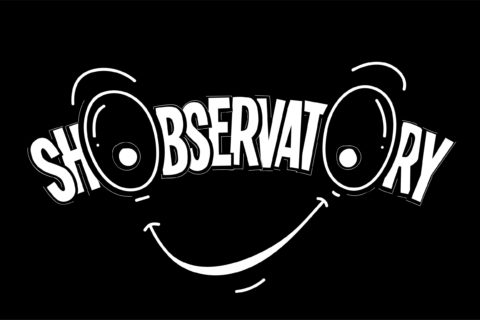
Our father and son road trip across America was emphatically NOT about gaining deeper insight into America circa 2021. We were going for baseball, not Alexis de Tocqueville. We named the road trip “Highways and Homers”, not the Odyssey. We packed up the Jeep and we drove it like we stole it.
But, across those 6,462 miles from DC to LA and back we made a few observations.
Sir Arthur Conan Doyle’s Sherlock Holmes famously stated that “You see, but you do not observe.” We didn’t set out to observe, but we had the time to, and so we did.
In 17 days we rolled through 21 states, hit 14 ballparks, and spent time in Durham, Atlanta, Tuscaloosa, Baton Rouge, Round Rock, Roswell, White Sands, Tucson, Phoenix, Los Angeles, Las Vegas, Salt Lake, Laramie, Denver, Wichita, Kansas City, Louisville, Florence, Kentucky, and Dayton, Ohio. Along the way our Jeep accumulated bobbleheads, foam hats, baseball jerseys, and snack wrappers. And we accumulated a little knowledge.
Our observations can be divided into three categories, and these will serve as three parts in this three part series. Part 1 is our basic observations from America in 2021, as seen firsthand on the road. Part 2 is what we learned about America through our tour of American ballparks large, medium and very small. And Part 3 is what I learned about GenZ, the Homeland Generation, via deep time at the wheel with my son.
Here’s what we learned about America 2021 from the road, wandering around, and talking with folks at baseball games.
Busted myths
The infotainment complex perpetuates a number of tropes that simply don’t survive a road trip.
When driving through the Texas oil patch we were amazed by the number of wind turbines up or under construction. And we saw plenty of solar farms as well, especially in the Southwest. Humans are remarkably resilient and the folks that sold you oil are planning to sell you electrons. Our road trip happened to coincide with Pride Month, and virtually every team had a Pride Night celebration on the calendar. The game we attended in Phoenix was a festive Pride Night celebration. Baseball marketers have embraced tolerance because Americans have. We also saw more than a few pride flags in some surprising locations, like Salt Lake City, highlighting just how far Americans have evolved their thinking on sexuality and human rights. And, we kept bumping into examples of new technology in surprising places: autonomous ride share vehicles in Las Vegas, a super hi-tech campus in Tuscaloosa, solar farms in corn fields, Teslas in the most remote locations. Many of the things we saw just didn’t fit easily into the conventional stereotypes about the United States. After visiting Roswell, New Mexico we decided to observe America without our preconceived notions, asking ourselves what an alien with no prior knowledge of America would make of the place. Here’s what we observed.
The US is an emerging market, massive, underdeveloped, operating below potential
A drive across America emphasizes how massive, rural, and underdeveloped the country is. The conventional view is that America is a Superpower. This is true. It is also not coming close to its potential, including development of natural resources, alternative energy, agricultural output, population, economic growth, and human development. Surprisingly, shockingly, almost everything is underdeveloped. America could double its population and not feel full in most places. America could generate an enormous amount of solar and wind power in our empty places. Many of our cities, large and small, have areas that could and should be redeveloped. And, too many Americans seem to have fallen through the cracks, are addicted, or stuck, and not achieving their potential. The good news is almost everywhere we looked Americans were developing and redeveloping their area.
Regionalism is still the story
It is hard to believe that the thing we drove across is one country, from the Washington suburbs to rice farms in the Mississippi delta, to the megacities of Houston and LA, and through the beautiful lonesome places in Wyoming and Kansas. It is hard to drive through the Sweet Tea Belt, New Mexico, Southern California, the Rockies, the Plains, and the Ohio River Valley and grasp that all of these cultures thrive within one republic. Ulysses S. Grant noted in his memoirs that the country was being unified after the Civil War and the rise of the railroads and telegraph. But, even with jet travel, the internet and smartphones the regionalisms remain. A pessimistic view would conclude that these cultures can’t possibly coexist in one nation. An optimistic view would conclude that federalism and local government works.
Back at work beyond the “Zoom Bubble.”
We thought we would be observing America’s “Grand Re-Opening” after COVID19 lockdowns and restrictions, but that was based on the faulty assumption that a majority of Americans were working remotely from home. In reality, most Americans have jobs that require them to work on site, driving a truck, farming, working in a pharmacy, a warehouse, a hospital, a grocery store, a construction site, a factory, a port. America was already open for business. White collar workers on the coasts are living deep in a Zoom Bubble.
Twitter is not reality
And, speaking of information bubbles, we came away from our trip more convinced than ever before that social media, and especially Twitter, are not in any way representative of the general population’s opinion or interests. The Biden campaign famously noted that they stayed off Twitter near the end of the campaign. And, they were wise to do so. The Americans we talked with on the road were friendly to a fault, not obsessed with politics, and not angry. They were kind, on their grind, doing their thing, and trying to enjoy their summer. The gulf between Twitterverse anger, hyper-partisanship, and snark versus real world conversation was simply immense. According to the Pew Research Center, around 22% of American adults are on Twitter, and users skew younger, higher income, higher education level, and more Democratic. Our road trip called into question the value of extrapolating Twitter chatter beyond the Twitter bubble.
More jobs than workers. Help Wanted.
We observed Help Wanted signs everywhere. There are a number of reasons for this, and we will leave those debates to economists, but it was encouraging to see America’s economic engine up and running after the 2020 pandemic body blow that it received.
Fresh starts: migration and the big reset
America has always been about mobility, moving on to greener pastures. The data has suggested we are less mobile, less likely to move, than in previous times. But, we encountered a very large number of people that had moved during the pandemic, and not just across town. In every city we met people that had recently moved as a personal decision to reset their lives. Most of these were personal decisions, and we called this phenomenon “The Big Reset.” In one of the more interesting discussions we had, we learned from fans in front of us at a Las Vegas Aviators game that they had recently moved from LA to Vegas, and that this migration pattern was creating a local building boom in Sin City. There is now plenty of data on where Americans have moved during the pandemic, and even the most popular destinations for U-Hauls. Whatever the official data is, we think it is dramatically undercounting the reality. This strikes us as healthy and as an enormous business opportunity.
Addiction: a local issue everywhere
Using our post-Roswell strategy of seeing things fresh as though we were a crash landed alien, we would conclude from American billboard advertising that: (1) Jesus is a very important person, (2) a large number of Americans are injured on the job and in need of lawyers, (3) McDonald’s is America’s kitchen, (4) 24-7 weed delivery apps are going to be a very big thing, and (5) America has a very serious addiction problem, especially opioid addiction. We encountered a very large number of billboards, public service announcements, pamphlets and other communication on opioid addiction, especially in rural areas.
The persistence of religious faith, even during the “rise of the nones”.
Much has been made recently about the decline of religious affiliation and religious observance in America. Social scientists have referred to this as “the rise of the nones”, as in no religious affiliation or weekly observance. This is true, but the counter factual observations gave us pause. First, we experienced street evangelists in virtually every city we went to. In addition to this, we were surprised at the number of religious billboards and hand printed signs both in English and Spanish, often citing Bible passages. Holly’s Drive Inn in Post, Texas is a great example of this. Right next to the state health service certificate at the order counter is the Bible passage from 2 Chronicles 7:14. America is a religious place. And a crash-landed alien would, at a minimum, assume that Jesus was some kind of important figure. But, that same crash-landed alien would observe many faiths at worship, as we did, in a tolerant America. As just one example of this, in our walk through the Arizona State University campus we walked down a pride flagged street and past a local mosque where Muslim students were in prayer.
Immigration, settlement and assimilation.
We often associate immigration with our large cities, but we stumbled across local immigrant communities everywhere. Newly arrived Americans are not just settling in Atlanta, Houston and LA, they’re settling down in smaller cities, towns and rural areas. And, we don’t talk about this much or about how valuable this is for smaller cities and towns. We didn’t expect to encounter Filipino immigrants in Wichita, Kansas drinking beer and cheering for the Wichita Wind Surge, but we did. America is an immigrant nation, and we have more than enough room. In fact, one of our big takeaways is that America should increase immigration and encourage migration to medium and small size towns, where living expenses and housing are cheaper.
Neighborliness and not division
America is going through a period of more intense partisanship. This is true. And, we have plenty of polling data to back this up. Any casual reader of the news would conclude that America is heavily divided, that Red and Blue America are pitted against each other in some kind of soft Civil War. That is emphatically not what we observed or experienced. No one tried to talk politics with us. Not once. In fact, quite to the contrary, we experienced friendliness and neighborliness from Americans everywhere we went, from walking along the Mississippi river in Baton Rouge to the inexplicable Nationals fans at a Roswell Invaders game, to the friendly folks at the Florence Y’alls. Yes, that is the name of the team, the Y’alls. Named after the local water tower, which reads “Florence Y’all”, the Y’alls play some great baseball south of the Ohio river in Northern Kentucky. Their mascot is a water tower, the “Y’all Star”. Really. The Y’alls slogan is “Y’all or Nothing”, and when we saw it, we realized that this was the slogan for our road trip. Y’all is the perfect American word, informal, inclusive. Every night we entered a new city. And every night everyone in that stadium was more than an individual. They were part of a family, a neighborhood, a workplace, a house of worship, a city, and a local baseball team. We set out to drive across America in the Jeep and see some baseball along the way, but we ended up falling in love with y’all, our crazy, patchwork American family. Most people don’t go to a baseball game for the baseball. They go for the community. And baseball is a community event. It’s all about team. It’s all about y’all. And, America would be wise to adopt the Florence Y’alls slogan. We have to make America. It’s y’all or nothing.


